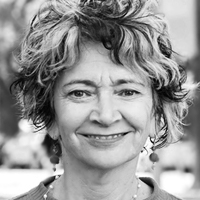Introduction
I wanted to begin with a personal story. During my 40-year career, I have worked primarily in psychiatric settings, as a psychiatric occupational therapist, using Dr. Cara's concept of the distinction between psychiatric and psychosocial occupational therapy. Throughout my career, I worked in a variety of settings with the mission of treating people with a primary psychiatric diagnosis. I also earned my law degree and practiced law during that timeframe, but I did that as a psychiatric occupational therapist. In recent years, I have been teaching the mental health curriculum.
Somewhere along the way, I took a job at a skilled nursing facility. During the interview, they kept asking me how many years of experience I had in physical rehabilitation and in working in a skilled nursing facility, and I kept saying, “Zero – I have zero years of experience.” But I understood the KAWA model and the importance of specific client-centered interventions, both based on understanding the importance of the client's personal social and cultural context. I was also an expert in Claudia Allen's cognitive disability models that highlighted what people could and could not do, and provided some guidance as to when people cannot - not will not, but cannot - learn new information and the value of then focusing on modifying environments, modifying objects, and training caregivers. I was knowledgeable about sensory modulation using sensations to help calm and alert people. I was an expert in engaging and motivating people from my years of working as a psychiatric occupational therapist. What many people might consider “challenging or difficult behaviors,” I saw those behaviors as the main obstacle for the patient's engagement in what they needed and wanted to do. Rather than dismiss those with challenging behaviors, I welcomed them and became the “go-to person” at the facility. I was enormously successful there and enjoyed the work very much. My success was based on my knowledge and skills from being a psychiatric occupational therapist.
My take-away message is, regardless of the setting in which you work, practice psychosocial occupational therapy with renewed energy and vigor. If you are a psychiatric occupational therapist, you might consider a job or a part time job in a skilled nursing facility, as you have so much to offer.
Mental Health Needs of Older Adults
An Often Overlooked Population
In home health settings, acute medical hospitals, and especially in skilled nursing facilities, there are ample opportunities to practice both psychiatric and psychosocial occupational therapy. Many patients in these settings have dementia, which is a DSM-V psychiatric diagnosis. You also will learn that there is some opportunity for reimbursement for practicing psychiatric occupational therapists in a skilled nursing environment or in home health, which are more commonly associated with physical rehabilitation clients.
The mental health needs of older adults are frequently overlooked in healthcare. According to SAMHSA (the Substance Abuse and Mental Health Services Agency), psychiatric and psychosocial disorders and emotional problems are present in a majority of skilled nursing facility patients (http://www.samhsa.gov/).
It is difficult to precisely quantify the extent and the types of problems that people in skilled nursing facilities have, because psychiatric conditions are not always the primary reason for placement at a SNF, and are not always accurately reported in the patient's medical file. As such, the mental health needs of older adults are not attended to or treated as well as they could be.
OT’s Roots in Psychiatry
Occupational Therapy is rooted in psychiatry. OT students are trained in mental health assessment and intervention, but their skills can be underutilized in clinical practice in SNFs and other physical rehabilitation settings. The explanations for this underuse are varied and include the complexity of geriatric care and the fact that therapists’ roles in older adult rehab, as dictated by third party reimbursement guidelines, tend to emphasize building physical strength and flexibility and improving activities of daily living.
